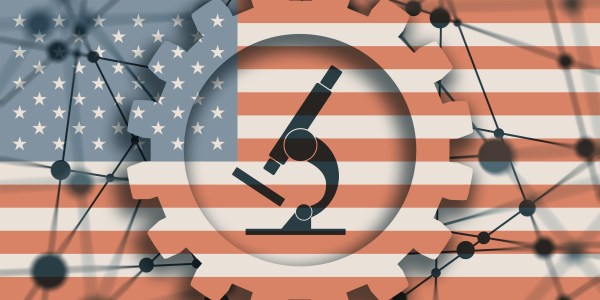Happy Friday! Are you thinking of trying to make an independent run at the presidency? Buddy, get in line.
Up to Speed
- Five of the top six Republican presidential candidates took the stage in Miami Wednesday night for the third presidential primary debate of the year. With a slightly narrower field and tighter moderating, the debate was arguably cleaner and more incisive than the first two, but the basic dynamics remained the same as before. Florida Gov. Ron DeSantis argued he was the most electable guy in the race. Former South Carolina Gov. and U.N. Ambassador Nikki Haley talked about her foreign policy bona fides and tangled with entrepreneur Vivek Ramaswamy. Ramaswamy himself new found ways to make himself the evening’s villain (sneering at Haley and DeSantis as “Dick Cheney in three-inch heels” and calling Ukrainian President Volodymyr Zelensky a Nazi). And South Carolina Sen. Tim Scott tried to reestablish himself as a top-flight candidate in a race where Haley and DeSantis are increasingly seen as tangling for second place.
- House Republicans may have a new top dog, but they’ve still got the same old problems. With government funding set to expire in a week, Speaker Mike Johnson was forced to backtrack on two appropriations bills due to building opposition from caucus centrists. The bills would not have averted a shutdown alone, but Johnson had hoped to pass them as an olive branch to his party’s conservative wing to keep them happy going into negotiations about yet another short-term spending package.
- West Virginia Sen. Joe Manchin announced Thursday he will not run again for the seat he has held since 2010. A popular former governor, the Democrat held onto his Senate perch for two full terms as his state veered more sharply toward the GOP, but he would have faced a formidable challenger next year in the form of Gov. Jim Justice, who is running in the Republican Senate primary. Although Manchin would have been the definite underdog had he stayed in the race, his decision is an undeniable blow to Democrats’ hopes of holding the 51-49 Senate.
- In a video announcing his decision, Manchin said he will be “traveling the country and speaking out to see if there is an interest in creating movement to mobilize the middle and bring Americans together.” The statement seemed like an apparent nod to his affiliation with No Labels, the nonpartisan group that has long plotted a centrist presidential ticket to run in the event of a Trump-Biden rematch. And a PAC affiliated with former Maryland Gov. Larry Hogan, a No Labels co-chair, released a foreign policy-focused ad this week touting Hogan’s Reaganite “peace through strength” worldview, stoking new speculation that the Republican might still be eyeing a presidential bid.
- And the presidential contest got yet another notable entry Thursday: Jill Stein, the doctor and climate activist whose 2016 Green Party bid attracted 1 percent support nationally and arguably helped Donald Trump inch past Hillary Clinton in key swing states that year. Stein said she would once again seek the Green Party nomination.
For Tim Scott: Iowa or Bust—Or Just Bust?
MIAMI—It’s easy to identify the candidates running behind in the Republican presidential primary. They show up in the spin room post debate to chat with reporters and make the full round of interviews with television news and conservative talk radio networks. That was Tim Scott Wednesday evening.
Singling out the affable United States senator from South Carolina is unfair. Wealthy biotech entrepreneur Vivek Ramaswamy also worked the spin room aggressively, here inside the Adrienne Arsht Center for the Performing Arts overlooking Biscayne Bay, following the third televised Republican debate of the 2024 nominating contest. (And Ramaswamy was accompanied by his wife, Apoorva, who wasn’t just there for moral support. She was an active surrogate, making her husband’s case in multiple interviews.) He, too, is losing.
But for a contender many prominent Republicans believed held so much promise at the outset of his campaign, Scott conscientiously traversing the spin room from one interview to next offered a blunt reality check. There’s a reason the senator recently scaled back the breadth of his White House bid to focus on Iowa: “Iowa or bust,” he told Salem Radio’s Hugh Hewitt recently. He’s struggling and stuck, an asterisk in national polling and a distant fourth in the Hawkeye State.
“We’re on the stage this month and we’ll be on the stage next month,” Scott told The Dispatch in brief comments in the spin room, referring to the just-concluded debate, broadcast from downtown Miami by NBC News.
Except Scott might not be on the stage December 6 when the Republican White House hopefuls meet in Tuscaloosa, Alabama, for a fourth scheduled faceoff, hosted by NewsNation. As of today, Scott’s 2.5 percent support in national surveys does not meet the polling threshold for participation established by the Republican National Committee.
Scott was responding to a request to assess the progress of his campaign. Pressed to elaborate—and to evaluate his viability in light of his retreat from the other critical early states of New Hampshire and South Carolina—Scott declined. “I just gave you my answer,” he deadpanned.
It wasn’t supposed to be this way for Scott. A charismatic black politician, he was raised in challenging economic circumstances by a single mother and had to overcome a somewhat troubled adolescence but would eventually start his own business. With that inspiring personal story, he won election to the Charleston County Council and the House of Representatives, before then-Gov. Nikki Haley appointed him to fill a vacant Senate seat in late 2012. He proceeded to win the post outright in a 2014 special election and was easily reelected in 2016 and 2022.
Scott’s legislative career, and his presidential campaign, have been marked by a focus on substantive issues and detailed proposals, in the domestic and foreign policy realms. And he’s a bona fide conservative.
In Miami, Scott did more than perform well, he dominated—in talk time, at least. Scott spoke for nearly 19 minutes of the two-hour telecast, according to The New York Times, controlling more air time than any of his four competitors on stage. Haley was second, talking for almost 18 minutes. In other words, Scott has all the makings of a serious contender for the GOP nomination. And yet.
The Scott campaign insists it’s not too late for the senator to surge. “These things are still fluid, there’s room to grow,” spokesman Matt Gorman said, pointing to Rick Santorum and Sen. Ted Cruz of Texas, both of whom came from behind to win Iowa and appeared in trouble in the November before the 2012 and 2016 caucuses, respectively. “We feel good.”
But Scott’s problems run deeper. The Republican frontrunner, Donald Trump, is at 58.5 percent nationally and more than 47 percent in Iowa, despite skipping all three debates. It’s certainly true that the Republican candidates considered more likely to emerge as the consensus alternative to the former president—Haley and Florida Gov. Ron DeSantis—also have steep hills to climb. But both are significantly closer to doing so than Scott. Crucially, neither appears at risk of failing to qualify for the next debate.
For a candidate who entered the race with a significant war chest and a collection of prominent supporters among Republican politicians and campaign donors, being barred from the stage in Tuscaloosa could be the death knell of Scott’s bid. Even if not, some Republican insiders in Iowa—where popular Gov. Kim Reynolds endorsed DeSantis—say it’s already too late, in part because the senator bet all of his chips on their state.
“It’s last gasp, Hail Mary territory and that’s the obvious message it sends. Even Iowa voters understand that,” said Republican strategist David Kochel, a veteran of several Iowa caucus campaigns. “Voters are trying to decide between Nikki Haley and Ron DeSantis for who gets to take on Trump one-on-one. Everyone else at this point has begun to look like a distraction.”
Notable and Quotable
“Make no mistake—I will win any race I enter.”
—West Virginia Sen. Joe Manchin on his electoral prospects, April 27, 2023







Please note that we at The Dispatch hold ourselves, our work, and our commenters to a higher standard than other places on the internet. We welcome comments that foster genuine debate or discussion—including comments critical of us or our work—but responses that include ad hominem attacks on fellow Dispatch members or are intended to stoke fear and anger may be moderated.
With your membership, you only have the ability to comment on The Morning Dispatch articles. Consider upgrading to join the conversation everywhere.